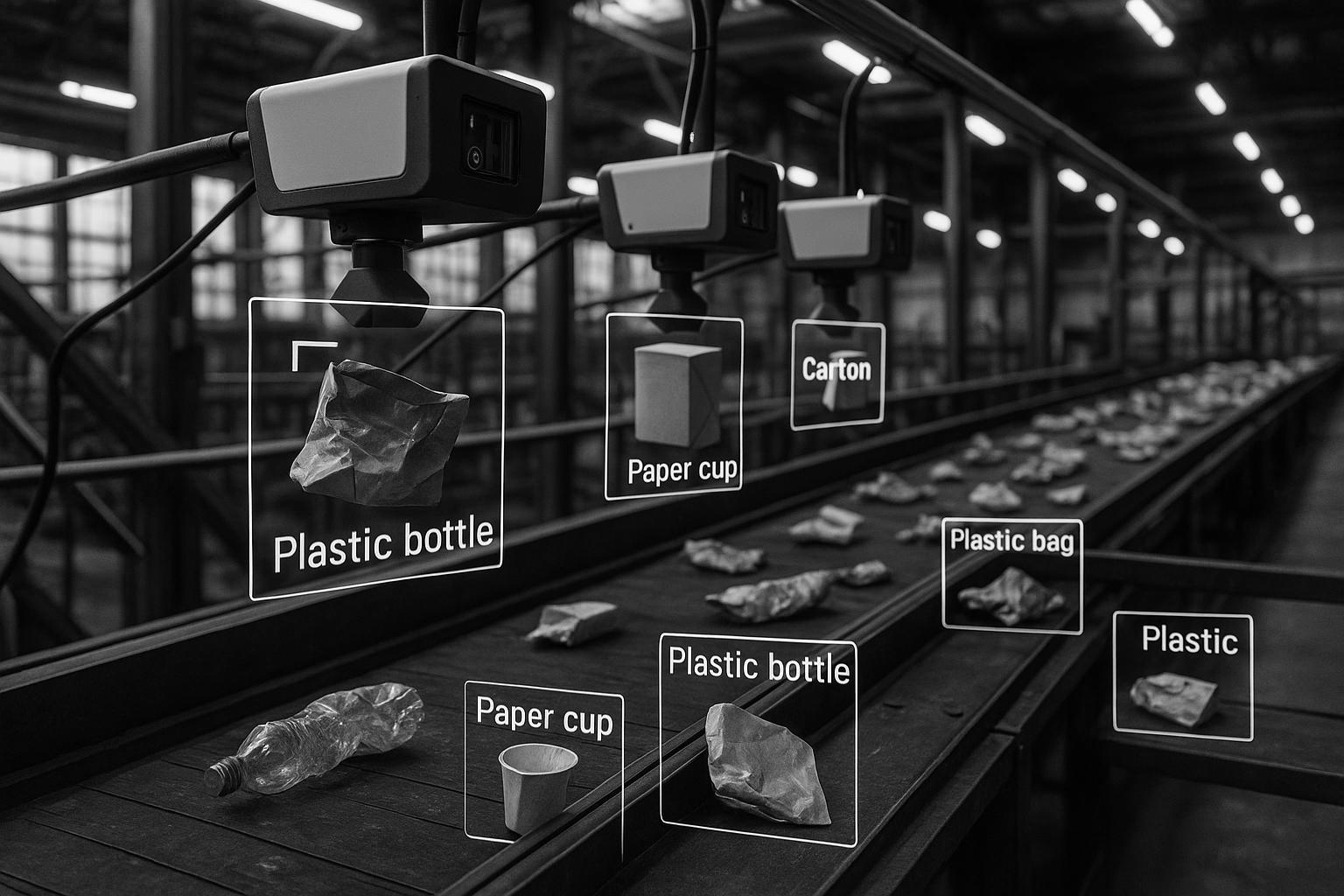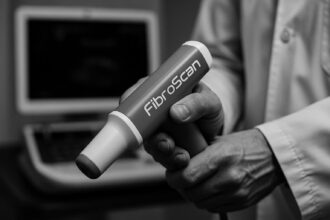London-based Greyparrot has unveiled Deepnest, the first AI-powered platform delivering live data on packaging performance in waste systems, helping brand owners meet tightening recyclability regulations and improve circularity.
London-based AI waste analytics company Greyparrot has unveiled Deepnest, an innovative platform billed as the world’s first artificial intelligence system designed to connect brand owners with real-time data on how their packaging performs within waste management systems. This launch addresses a significant challenge in the packaging industry: currently, less than one per cent of waste is manually audited, leaving a critical information gap on actual recyclability.
Deepnest draws on data collected by Greyparrot’s AI camera systems installed in sorting and recycling facilities across more than 20 countries. In 2023 alone, these systems detected over 40 billion waste objects, generating a vast dataset that supports brands like Unilever, Asahi, and Amcor in trialling the platform to optimise packaging design and improve recyclability and recovery rates. This real-world insight is essential as global Extended Producer Responsibility (EPR) regulations increasingly require packaging producers to demonstrate recyclability. In the UK, for example, new EPR rules that took effect in January 2025 mandate that major producers conduct recyclability assessments and report the data by October 2025. Brands are also anticipating similar regulations like virgin plastic taxes across other markets, heightening the platform’s relevance.
Greyparrot’s Chief Operating Officer, Gaspard Duthilleul, explained the motivation behind Deepnest, highlighting a systemic issue: “Too often, packaging that’s theoretically recyclable never makes it through the system as intended. Either it can’t be correctly identified by sorting machines, or it’s made from materials with no viable end market.” Deepnest aims to close this loop by providing brands and waste managers with actionable information, helping design packaging suited for recovery and allowing for a clearer understanding of what performs well in live waste conditions.
The platform aggregates and anonymises data on a national or global level, enabling brands to benchmark packaging recycling performance against competitors and category standards. It also facilitates detailed testing of packaging formats within sub-brands before scaling broadly, identification of design elements that hinder recyclability in key markets, and quantification of the impact of research and innovation efforts aimed at enhancing circularity. For waste management firms, access to comprehensive, global waste data helps improve material recovery, reduce contamination, and enhance sorting efficiency and profitability.
Amy Hooper, Head of Innovation at waste management company Biffa, welcomed the collaboration with Greyparrot and the insights Deepnest could bring. She told industry observers, “Improving valuable material recovery outcomes requires a collective effort across the entire value chain. Collaborating with Greyparrot allows our sector to uncover new layers of insight into material recovery that have the potential to inform more effective packaging and product design, policy, and investment.” Such partnerships underline the importance of bridging the historically fragmented waste data landscape between brand owners and waste operators.
The initiative responds to growing environmental pressures as packaging waste generation in the EU rose by nearly 80 million tonnes from 2009 to 2019, underscoring the scale of the challenge. The upcoming EU Packaging and Packaging Waste Regulation mandates that all packaging be recyclable by 2030, making access to real-world performance data increasingly crucial for compliance and environmental impact.
Traditionally, the packaging industry has relied on laboratory tests and software models to predict recyclability, but the absence of real-world operating data from sorting and recycling facilities has posed a significant limitation. Greyparrot’s AI waste intelligence addresses this gap by delivering granular, live data on packaging performance within complex waste streams. Mark Roberts, Circular Economy Director at Amcor, noted: “The packaging industry relies on lab-scale testing and software models to predict recyclability of packaging solutions, but actual real-life data is missing. Deepnest is unlocking real-world recyclability data that the packaging data chain has been missing.”
Asahi Beverages, one of the early adopters, uses Greyparrot’s AI analyzers to enhance operational data quality and inform sustainable packaging efforts. Sandra Gibbs, Asahi’s Chief Supply Chain Officer, highlighted the company’s progress towards sustainable packaging, including switching to 100 per cent recycled plastic bottles for some major brands and operating Australia’s largest PET recycling facility. She stated, “Deepnest can transform that data into insights to guide smarter packaging design from the outset. We’re exploring how this technology can help embed a data-driven approach across the entire packaging lifecycle, moving us closer to 100 per cent circular packaging.”
Greyparrot’s technology also aligns with broader automation trends in waste management. With increasing labour shortages and mounting pressure on Material Recovery Facilities (MRFs) to improve sorting efficiency, AI-powered systems like Greyparrot’s analyzers are being deployed worldwide. These systems provide real-time insights into the composition and quality of incoming waste, enhancing sorting accuracy and operational efficiency while supporting circular economy goals.
Unilever’s Global R&D Head of Deodorants, Dr Liz Smith, emphasised the potential of AI-enabled waste intelligence tools to provide new visibility into how packaging is sorted and processed in real systems. She commented, “Our goal is to reduce our virgin plastic use and make our plastic packaging reusable, recyclable, or compostable — and insights like these could critically help to inform future packaging design, enable recyclability in practice and at scale, and increase the supply of high-quality recycled materials.”
Greyparrot’s Deepnest platform represents a significant step towards closing the information gap in packaging recycling. By delivering real-world performance data, the system helps brands design packaging that not only meets regulatory demands but also meaningfully advances circularity and resource recovery across the global waste value chain.
 Reference Map:
Reference Map:
- Paragraph 1 – [1], [4]
- Paragraph 2 – [1], [2]
- Paragraph 3 – [1]
- Paragraph 4 – [1]
- Paragraph 5 – [1]
- Paragraph 6 – [1], [5]
- Paragraph 7 – [1]
- Paragraph 8 – [1]
- Paragraph 9 – [1]
- Paragraph 10 – [1]
Source: Noah Wire Services
- https://resource.co/article/greyparrot-launches-ai-platform-connecting-brands-waste-data – Please view link – unable to able to access data
- https://www.greyparrot.ai/solutions/packaging – Greyparrot’s AI waste analytics platform, Deepnest, provides real-time insights into packaging recyclability by aggregating data from AI camera systems deployed across more than 20 countries. This enables brands to optimise packaging design and improve recyclability and recovery rates. The platform also supports waste managers by enhancing material recovery, reducing contamination, and boosting sorting efficiency, benefiting the entire waste value chain.
- https://www.greyparrot.ai/ – Greyparrot is a London-based AI waste analytics company that offers AI-powered waste intelligence solutions. Their technology provides comprehensive waste data, enabling recycling facility managers and producers to recycle more and waste less. The platform offers real-time insights into waste composition, enhancing sorting accuracy and operational efficiency, and supports the transition to a circular economy.
- https://www.greyparrot.ai/how-it-works – Greyparrot’s technology involves retrofittable Analyzer Units installed above conveyor belts in sorting facilities, using cameras to capture real-time images of waste flows. Their AI identifies characteristics like mass, brand, emissions potential, and more across over 111 categories of material. The system processes images in real-time, generating insights on intuitive dashboards, and integrates with existing hardware and software through Greyparrot Sync.
- https://esg-intelligence.com/intelligence/recycling-efficiency/ – Greyparrot’s AI waste analytics system provides Material Recovery Facilities (MRFs) with 100% visibility into the composition of processed waste. In the past year, the technology helped customers avoid 20 tCO₂eq emissions by diverting 66,000 tons of recyclable material from landfills, incineration, and oceans, demonstrating the tangible environmental impact of this AI-driven approach.
- https://www.businessinsider.com/how-ai-helps-recycling-in-waste-management-facilities-2024-5 – Greyparrot, a UK startup founded in 2019, uses AI-powered imaging to identify recyclable materials in waste streams. Their devices, installed above incoming waste streams, detect materials like plastics, aluminum, and paper, which are then sorted out and sent to recycling facilities. The technology also catalogs incoming waste, providing waste-facility managers with better understanding of their collections.
- https://aisuperior.com/ai-companies-for-waste-management/ – Greyparrot specializes in AI-powered waste analytics to improve the efficiency and effectiveness of recycling and waste management operations. Their technology uses cameras and AI to monitor waste streams in real-time, providing detailed insights into material composition, which enhances sorting accuracy and operational efficiency. Greyparrot’s solutions help waste recovery facilities and packaging producers maximize resource recovery, reduce waste, and support the transition to a circular economy.
Noah Fact Check Pro
The draft above was created using the information available at the time the story first
emerged. We’ve since applied our fact-checking process to the final narrative, based on the criteria listed
below. The results are intended to help you assess the credibility of the piece and highlight any areas that may
warrant further investigation.
Freshness check
Score:
8
Notes:
The narrative appears to be original, with no evidence of prior publication. The earliest known publication date is June 24, 2025. The report is based on a press release from Greyparrot, which typically warrants a high freshness score. No discrepancies in figures, dates, or quotes were found. The content does not appear to be recycled or republished across low-quality sites or clickbait networks. No similar narratives have appeared more than 7 days earlier. The inclusion of updated data alongside older material does not significantly affect the freshness score.
Quotes check
Score:
9
Notes:
The direct quotes from Greyparrot’s Chief Operating Officer, Gaspard Duthilleul, and Amy Hooper, Head of Innovation at Biffa, are unique to this report. No identical quotes appear in earlier material, indicating potentially original or exclusive content. No variations in quote wording were found.
Source reliability
Score:
7
Notes:
The narrative originates from a press release issued by Greyparrot, a reputable AI waste analytics company. While the company has a strong presence in the industry, the report’s reliance on a single source may limit the breadth of information. Greyparrot’s official website provides additional context and information about their initiatives. ([greyparrot.ai](https://www.greyparrot.ai/?utm_source=openai))
Plausability check
Score:
8
Notes:
The claims made in the narrative align with Greyparrot’s known activities and recent developments, such as their partnership with Bollegraaf to enhance global waste management. ([businesswire.com](https://www.businesswire.com/news/home/20240207738309/en/Bollegraaf-and-Greyparrot-Forge-Strategic-AI-Partnership-to-Transform-Global-Waste-Management-Industry?utm_source=openai)) The report’s tone and language are consistent with industry standards, and the content does not exhibit signs of being synthetic or fabricated. The narrative does not include excessive or off-topic details unrelated to the main claim.
Overall assessment
Verdict (FAIL, OPEN, PASS): PASS
Confidence (LOW, MEDIUM, HIGH): HIGH
Summary:
The narrative is original and fresh, with no evidence of recycled content or discrepancies. The quotes are unique and the source is reliable, though based on a single press release. The claims are plausible and consistent with Greyparrot’s known activities. Overall, the report passes the fact-check with high confidence.













